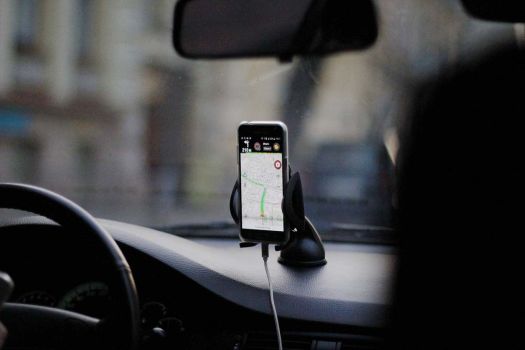Why Doesn’t GPS Work Indoors?

The Global Positioning System (GPS) signals that we use for all manner of location, navigation and timing applications, emanate from a constellation of 24 satellites orbiting the earth some 12,500 miles above ground level.
Suffice to say that when the GPS signals reach the earth, they are very weak. The average signal level at ground level is -130dBm, which requires very sensitive receivers to even detect it.
To put it in perspective, a mobile phone signal at a strength of -70dBm is considered “excellent”. When signal strength decreases by 3dB, it will be half of its original strength. If it decreases in strength by 6dB, it is one quarter of its original strength, and so on.
For those who like numbers, if we carry on halving the signal strength, 3dB at a time, from -70 down to -120, the signal will halve 20 times and will be 0.0000009537 the strength of an excellent mobile phone signal.
Satnav In The Car
Ever wondered why your satnav device takes ages to initialise when in the car? If you consider the very weak GPS signal strength, plus a laminated windscreen with built in heating element, you can see what the satnav has to deal with. The signal struggles to get through the screen to the device, even when it is fixed directly to the inside of the windscreen.
Cars with a navigation function in the infotainment system suffer less from this because there is usually a multi-element antenna on the car roof. The shark’s fin antenna, seen on many vehicles today, may contain FM, AM and DAB radio, cellular and GPS elements.
The Blocking Effect Of Buildings
GPS systems work by receiving signals from satellites circling the Earth’s orbit. An accurate positional fix is obtained when receiving a signal from at least four satellites.
Buildings are notorious for blocking and weakening GPS signals due to their dense, sometimes reflective, construction materials, which can cripple usability. When indoors, the lack of GPS signal causes issues for several industries and occupations. To learn more about GPS repeaters, check out this video.
GPS Is Vital For Blue Light Services
Maintaining a strong GPS signal indoors is vital for emergency services including ambulances, fire stations and police departments.
These key services use GPS to track the location of staff and physical assets, but when they are in a building the signal is often degraded or simply not available. With incorrect location data, our emergency services can be significantly impeded when carrying out their life-saving duties.
For example, when a fire appliance is parked indoors, its navigation system can lose its GPS fix. When leaving the fire station to attend an emergency call, it can take several minutes to re-acquire a GPS fix, during which time the navigation systems on board do not work. At the same time, the control centre is under the impression that the appliance is still at the fire station, when in fact it has long since departed.
Similarly, if a police officer’s portable radio does not receive a GPS signal when inside a police station, their exact location is not known to the control centre. The effect of this is that the officer’s radio will be reporting its location to the command centre as the last place it received a live signal from the satellites, i.e., just before entering the building.
How Can GPS Signal Loss Be Prevented?
A GPS repeater system in a fire station provides a permanent GPS signal, which means that the navigation equipment on the appliances does not lose GPS fix and eliminates the potentially catastrophic acquisition delay on exit.
A GPS repeater in a police station ensures that personal radios always have a GPS fix, which means that control centre operatives can be confident in the reported location of their assets.
In each case, the GPS repeater system brings the outdoor signal inside, so that it can bypass dense structures like buildings. The repeater strengthens the signal so that GPS is available inside areas that would not normally be able to receive a strong enough GPS signal.
Using Custom-Designed GPS Repeaters
In some instances, such as with the emergency services, it can be important to have a tailor-made GPS repeater system to address their exact needs. A custom GPS repeater will conform to exact specifications, such as working across multiple areas of a facility.
GPS is a pivotal piece of technology, and it can bring exceptional benefits to society if it works properly. If you are struggling with a weak GPS signal, speak with our team at FalTech today. We have extensive experience in support and solutions to help strengthen your GPS signal. Contact us today for more information.
Image Source: Unsplash
